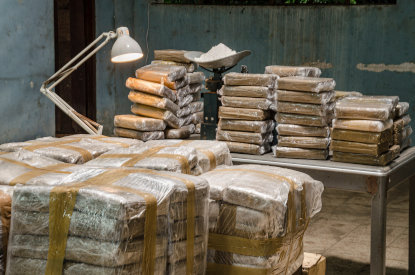The Australian government’s establishment of the Home Affairs Portfolio in 2017 represented a significant reform to Australia’s national security, intelligence and law enforcement arrangements.
This article explores the key crime fighting efforts of Home Affairs as outlined in the report Home Affairs – The Fourth Year.
How is Home Affairs fighting crime?
Home Affairs leads the Australian government’s efforts to detect, deter and counter malicious actors, both domestic and foreign, who seek to harm Australians.
There is a strong focus on Transnational, Serious and Organised Crime (TSOC) such as drug trafficking, modern slavery and human trafficking, child exploitation and abuse, and financial crime.
Home Affairs works with industry, state and territory governments, and key international partners to fight these crimes which threaten the safety and security of the Australian community.
Key achievements in the fourth year
In its fourth year, Home Affairs:
- Supported the warrant activity that led to two arrests and the location and seizure of a firearm, three portable clan labs and various drugs and chemicals.
- Contributed to the following operational outcomes as part of the Serious Financial Crime Taskforce: four arrests, the location and detention of two unlawful non-citizens, the identification of $4 million in assets to potentially be restrained, identification of $640,000 in tax liabilities, and the provision of $103,000 in garnishee notices.
- Strengthened the supply chain through Project JARDENA (launched in 2019) to proactively identify and combat trusted insider threats within the supply chain, which has resulted in the detection of 160 licence breaches, the issuing of $300,000 in infringement notices, and major detections of illicit goods such as tobacco and illegal drugs.
- Partnered with the National Disability Insurance Agency to investigate a syndicate responsible for a multi-million dollar fraud against the National Disability Insurance Scheme, leading to the arrest of six people and the seizure of over $2 million in suspected proceeds of crime, including bullion, cryptocurrency, cash and other luxury assets.
- Undertook the largest seizure of 1,4-Butanediol ever seized in South Australia, through a joint coordinated effort with the South Australian and New South Wales Police. The seizure contained 800 litres of 1,4-Butanediol that had been imported from overseas, which equates to 800,000 doses of the drug “Fantasy” with an estimated street value of $5.6 million.
Case study: Australian Criminal Intelligence Commission
In December 2020, the ACIC identified that a crew member on a ship due to arrive in Australia in March 2021, was likely involved in drug trafficking.
The AFP established a cross-jurisdictional taskforce to track the ship’s arrival. The person of interest was intercepted upon arrival, and police seized 11 crates containing approximately 200 kilograms of cocaine with an estimated street value of $90 million.
Case study: Office of the Special Investigator
Since being officially established on 4 January 2021, the Office of the Special Investigator (OSI) has partnered with the AFP to investigate alleged breaches of the Laws of Armed Conflict by Australian Defence Force (ADF) personnel in Afghanistan from 2005 to 2016.
Home Affairs has provided corporate, ICT and other support including to help establish offices in Canberra, Sydney and Melbourne.
This important work ensures that Australian law and principles of justice are upheld.
Key takeaways
Although established relatively recently, Home Affairs is making strides in fighting Transnational, Serious and Organised Crime. This success in is large part due to its collaboration with all levels of government and with international partners.



